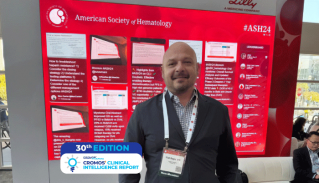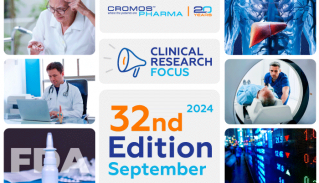
Advancing Lung Cancer Care: New Treatment Insights Highlighted During Awareness Month
As Lung Cancer Awareness Month brings attention to the disease, the impact of lung cancer worldwide remains grave, with around 1.8 million lives lost each year. Recent findings in cancer research bring encouraging news: a new combination therapy of amivantamab and lazertinib offers a substantial improvement for those with advanced non-small cell lung cancer (NSCLC). This innovative treatment has shown to extend progression-free survival significantly compared to standard options, marking a potential turning point in care for this aggressive cancer type.
Understanding the Study and Its Significance
The Phase 3 MARIPOSA trial enrolled over 1,000 patients with advanced NSCLC, from regions across the globe, including the UK, US, China, and India. All participants had a specific genetic mutation in the epidermal growth factor receptor (EGFR), a common marker in NSCLC cases. Patients were assigned to either the new combination therapy of amivantamab and lazertinib, the standard drug osimertinib, or lazertinib alone. Results were promising: those receiving the combination treatment experienced a significantly extended progression-free period, averaging 23.7 months, compared to 16.6 months for those on the standard treatment.
Mechanism of Action: Targeting Cancer on Two Fronts
Amivantamab and lazertinib work through complementary mechanisms to target cancer cell growth from two distinct angles. Amivantamab is a monoclonal antibody that disrupts cancer cell growth signals, while lazertinib, a tyrosine kinase inhibitor, blocks specific enzymes critical to tumor cell survival. This dual-action approach provides a more comprehensive attack on cancer, improving control over disease progression and potentially minimizing resistance by addressing multiple pathways within cancer cells.
Implications for the Future of Lung Cancer Treatment
The results of this trial offer a hopeful shift in lung cancer treatment, particularly given the low survival rates associated with advanced stages of the disease. The therapy has already gained FDA approval in the US, and there are growing expectations for its endorsement by other health regulatory bodies globally. Should the combination therapy become widely available, it could set a new standard for treating EGFR-mutated NSCLC, providing patients with a more effective option for managing their disease.
Conclusion
The MARIPOSA trial results underscore a significant advance in cancer treatment, spotlighting a new wave of more personalized therapies. As approvals expand and accessibility increases, this combination therapy brings renewed hope to lung cancer patients and their families, potentially transforming the landscape of treatment for NSCLC.






























